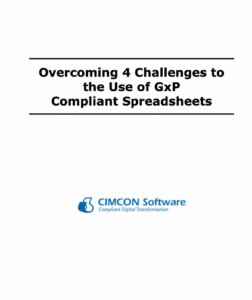Inventory, Risk Assessment & Enterprise Data Lineage
Organizations today are saddled with millions if not billions of files on their file servers that users have accumulated over the years. It is a nearly impossible task for the users to manually review each and every file and disposition them by deciding which ones should be deleted, retained (and for how long) or moved. As a result these files continue to consume valuable I.T. infrastructure, effort and costs in storage, virus protection, backups and performance.
The EUC Insight Discovery File Disposition service performs an automated dispositioning of the files based on a rule-based engine that your firm can define. First, the files can be scanned at regular intervals with a defined pace, scale and scope. Secondly, rules/policies can be defined for categorization and disposition based on age, size, owner and content. As the files are scanned, they are automatically categorized and then dispositioned based on the defined rules and policies. A vast majority of files can be automatically dispositioned based on this method. For those that cannot, file owners are automatically alerted to provide their input on the file dispositioning of the file.
Benefits
- Automated cleanup of file/network servers saving valuable I.T. infrastructure costs.
- Reduced scope of files that need to be backed up and protected on a daily basis.
- Improved performance and reliability.
- Managed centrally by I.T.
- Configurable rule-based engine for dispositioning.
- Several file repositories supported for both source and target destinations.
- User input can be obtained when required for final dispositioning.
Features
 Centralized Service
Centralized Service
- Disposition is performed by a centralized service, user input can be avoided for the vast majority of files.
 Multiple Repositories Supported
Multiple Repositories Supported
- These include network file shares, Microsoft Azure, AWS, Box, Documentum or GitHub. Other integrations can be built using APIs.
 Configurable Rules Engine and Policies
Configurable Rules Engine and Policies
- Scan schedule and rules for dispositioning are fully configurable – these include file age, size, owner, type and content.
 Automated Dispositioning
Automated Dispositioning
- Actions such as Move, Delete, Investigate and Retain can be applied on the files that are scanned.
 Browser Based
Browser Based
- User input can be obtained when required for final dispositioning using a browser based interface or Excel for fast processing of a large volume of files.

Overcoming 4 Challenges to the Use of GxP Compliant Spreadsheets
Today, spreadsheets are commonly used throughout the biopharmaceutical, pharmaceutical and other FDA-regulated industries. Spreadsheets are considered systems and when they impact data that affects product identity, strength, purity and safety, they must be validated and controlled. The purpose of this White Paper is to review the solution to four (4) common challenges when using spreadsheets to meet GxP quality requirements.
